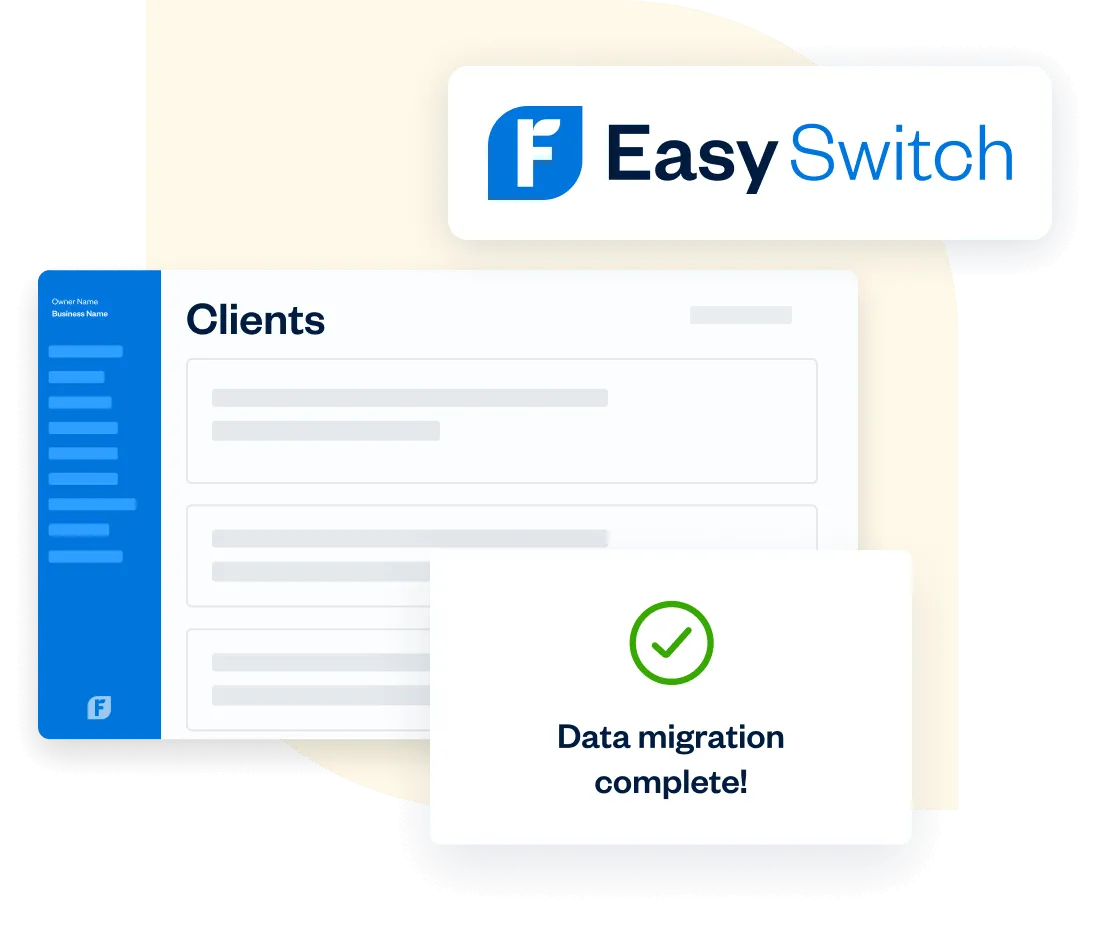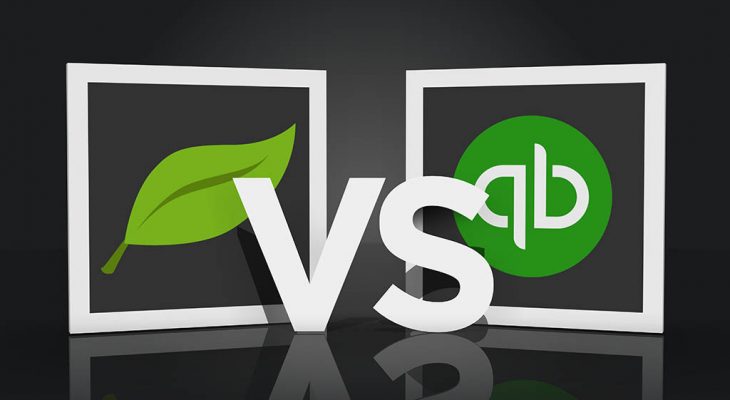FreshBooks and QuickBooks Self-Employed cater to different needs:
- FreshBooks: Ideal for small business owners and freelancers needing robust invoicing, time tracking, and project management. Its features extend beyond accounting, offering flexibility for businesses managing multiple clients and tasks.
- QuickBooks Self-Employed: Best for sole proprietors and freelancers focusing on tax-related tasks. It simplifies tracking expenses, categorizing deductions, and preparing for quarterly tax filings.
Choose FreshBooks for comprehensive business management and QuickBooks Self-Employed for tax-focused financial tracking.
Both have unique features tailored for freelancers and small business owners. Comparing FreshBooks and QuickBooks Self-Employed helps you decide which one suits your needs. Each software offers different tools and benefits. This comparison saves you time and ensures you make an informed choice.
Whether you’re managing expenses, invoicing clients, or tracking time, understanding each platform’s strengths can streamline your business operations. Let’s dive into the key differences and find out which software is the perfect fit for you.
Key Features Comparison
Choosing the right accounting software is crucial for freelancers and small business owners. FreshBooks and QuickBooks Self-Employed are popular choices. Both offer unique features tailored to meet different needs. This section will compare the key features of FreshBooks and QuickBooks Self-Employed.
Invoicing Capabilities
FreshBooks provides a robust invoicing system. Users can create customized invoices with their branding. It also supports automatic payment reminders and late fees. FreshBooks offers multi-currency invoicing, which is a plus for international clients.
QuickBooks Self-Employed offers basic invoicing features. Users can create and send invoices quickly. It supports automatic reminders and allows for tracking invoice status. However, it lacks customization options compared to FreshBooks.
| Feature | FreshBooks | QuickBooks Self-Employed |
|---|---|---|
| Customizable Invoices | Yes | No |
| Automatic Payment Reminders | Yes | Yes |
| Multi-Currency Invoicing | Yes | No |
Expense Tracking
FreshBooks offers an intuitive expense tracking feature. Users can snap photos of receipts and categorize expenses. It supports bank integration for automatic expense tracking. Users can also create recurring expenses for regular transactions.
QuickBooks Self-Employed excels in mileage tracking. It automatically tracks mileage for business trips. Users can categorize expenses and link bank accounts. This feature helps in separating personal and business expenses.
| Feature | FreshBooks | QuickBooks Self-Employed |
|---|---|---|
| Receipt Capture | Yes | Yes |
| Bank Integration | Yes | Yes |
| Mileage Tracking | No | Yes |
Time Tracking
FreshBooks includes a built-in time tracking tool. Users can log their hours and link them to projects. This feature helps in accurate billing for hourly work. FreshBooks also allows team collaboration on time tracking.
QuickBooks Self-Employed does not have a built-in time tracking feature. Users need to use third-party tools for this purpose. This can be a limitation for freelancers who bill by the hour.
| Feature | FreshBooks | QuickBooks Self-Employed |
|---|---|---|
| Built-in Time Tracking | Yes | No |
| Project Linking | Yes | No |
| Team Collaboration | Yes | No |
Tax Management
FreshBooks offers basic tax management tools. Users can generate tax summaries and reports. It supports tax time preparation but lacks advanced tax features.
QuickBooks Self-Employed excels in tax management. It automatically calculates estimated quarterly taxes. Users can also separate business and personal expenses for accurate tax reporting. QuickBooks Self-Employed integrates with TurboTax for seamless tax filing.
| Feature | FreshBooks | QuickBooks Self-Employed |
|---|---|---|
| Tax Summaries | Yes | Yes |
| Estimated Quarterly Taxes | No | Yes |
| TurboTax Integration | No | Yes |

Credit: www.freshbooks.com
Pricing Plans
Both Freshbooks and Quickbooks Self-Employed offer flexible pricing plans. These plans cater to different needs and budgets. Understanding these plans can help you choose the best option for your business. Let’s dive into the details.
Freshbooks Pricing Tiers
Freshbooks offers several pricing tiers. Each tier has unique features and benefits. Here are the main pricing tiers for Freshbooks:
| Plan | Monthly Cost | Key Features |
|---|---|---|
| Lite | $15 | Bill up to 5 clients, Unlimited invoices, Expense tracking |
| Plus | $25 | Bill up to 50 clients, Automatic expense tracking, Payment reminders |
| Premium | $50 | Bill up to 500 clients, Advanced reporting, Project profitability |
| Custom | Custom Pricing | Custom features, Dedicated account manager, Priority support |
Lite is ideal for freelancers with a few clients. Plus suits small businesses with moderate needs. Premium supports larger operations. Custom is for businesses needing tailored solutions.
Quickbooks Self-employed Pricing Options
Quickbooks Self-Employed offers simple pricing options. These plans are straightforward and cater to freelancers and independent contractors.
| Plan | Monthly Cost | Key Features |
|---|---|---|
| Self-Employed | $15 | Expense tracking, Mileage tracking, Basic reporting |
| Self-Employed Tax Bundle | $25 | Expense tracking, Mileage tracking, Estimate quarterly taxes |
| Self-Employed Live Tax Bundle | $35 | All Tax Bundle features, Live tax advice, Year-end filing |
Self-Employed is perfect for basic needs. Self-Employed Tax Bundle adds tax estimation features. Self-Employed Live Tax Bundle includes live tax help.
Choosing between Freshbooks and Quickbooks Self-Employed depends on your business needs. Consider the features and pricing carefully.
User Interface And Experience
Choosing the right accounting software involves more than just features. The user interface and overall experience can make a big difference. In this section, we compare the user interface and experience of Freshbooks and Quickbooks Self-Employed.
Ease Of Use
Freshbooks offers a clean and intuitive interface. The dashboard is simple. Users can easily find what they need. Tasks like invoicing and tracking expenses are straightforward. Even beginners can navigate without hassle.
Quickbooks Self-Employed also provides an accessible interface. The layout is user-friendly. It’s designed to meet the needs of freelancers and small business owners. The dashboard displays essential information clearly. Users can quickly access key features.
Mobile App Functionality
Freshbooks has a robust mobile app. It’s available for both iOS and Android. The app mirrors the desktop experience. Users can send invoices, track time, and manage expenses on the go. The interface is smooth and responsive.
Quickbooks Self-Employed also offers a powerful mobile app. It supports both iOS and Android. Users can snap photos of receipts, track mileage, and categorize expenses easily. The app syncs well with the desktop version. It ensures a seamless experience.
Comparing Freshbooks and Quickbooks Self-Employed, both score high in user interface and experience. The choice depends on specific needs and preferences.

Credit: www.reconcile.ly
Integrations
Choosing the right accounting software involves considering its integrations. Both FreshBooks and QuickBooks Self-Employed offer a range of integrations. This can significantly impact your workflow efficiency and productivity.
Third-party App Compatibility
Integrating with other tools is vital for many businesses. FreshBooks offers compatibility with over 100 third-party apps. These include popular tools like Stripe, G Suite, and Shopify. This allows seamless data flow between platforms.
QuickBooks Self-Employed integrates with fewer apps. Notable integrations include PayPal, Etsy, and Amazon. This is suitable for freelancers and solo entrepreneurs. However, it may lack some options for larger businesses.
Here’s a quick comparison:
| Software | Number of Integrations | Notable Integrations |
|---|---|---|
| FreshBooks | 100+ | Stripe, G Suite, Shopify |
| QuickBooks Self-Employed | Fewer | PayPal, Etsy, Amazon |
Payment Gateway Options
Payment gateways are crucial for smooth transactions. FreshBooks supports multiple payment gateways. These include PayPal, Stripe, and WePay. This flexibility helps you cater to various client preferences.
QuickBooks Self-Employed also offers key payment gateways. You can connect with PayPal and QuickBooks Payments. This is sufficient for many freelancers and small businesses.
Consider the following comparison:
- FreshBooks: PayPal, Stripe, WePay
- QuickBooks Self-Employed: PayPal, QuickBooks Payments
Both platforms offer essential payment gateways. FreshBooks provides more options, making it a versatile choice for different business needs.
Customer Support
Customer support is crucial when choosing accounting software. Users need reliable assistance to resolve issues quickly. Comparing Freshbooks and Quickbooks Self-Employed helps determine which offers better support.
Support Channels
Both Freshbooks and Quickbooks Self-Employed provide several support channels. These include:
- Live chat
- Phone support
- Knowledge base
- Community forums
Freshbooks offers live chat, email, and phone support. Their extensive knowledge base helps users find quick solutions. The community forums are active and helpful.
Quickbooks Self-Employed offers similar channels. They include a comprehensive knowledge base and community forums. Users can also access live chat and email support.
Response Times
Response times can vary between the two platforms. Freshbooks users report quick responses. Live chat and phone support typically respond within minutes. Email support takes a few hours.
Quickbooks Self-Employed users experience varied response times. Live chat is usually prompt. Email support may take longer, sometimes up to 24 hours.
Below is a comparison table for clarity:
| Support Channel | Freshbooks Response Time | Quickbooks Self-Employed Response Time |
|---|---|---|
| Live Chat | Within minutes | Usually prompt |
| Email Support | A few hours | Up to 24 hours |
| Phone Support | Within minutes | Not available |
Fast response times ensure users can continue their work without long delays. Efficient support is vital for any business.
Pros And Cons
Choosing the right accounting software can be challenging. Freshbooks and Quickbooks Self-Employed are popular options. Both have their unique pros and cons. This section will help you understand the advantages and disadvantages of each.
Freshbooks Advantages And Disadvantages
Freshbooks offers many benefits for small businesses and freelancers. Let’s explore these in detail:
- Easy to use: Freshbooks has an intuitive interface. It’s user-friendly for beginners.
- Time tracking: It includes built-in time tracking tools. This is great for project-based billing.
- Customer support: Freshbooks has excellent customer service. They offer phone, email, and chat support.
- Invoicing: It allows easy creation of professional invoices. You can customize them to match your brand.
Despite these advantages, Freshbooks has some downsides:
- Higher cost: Freshbooks can be expensive for small businesses. The pricing plans may not fit every budget.
- Limited integrations: Freshbooks has fewer third-party integrations. This could be a limitation for some users.
- Learning curve: Advanced features may take time to learn. This can be challenging for new users.
Quickbooks Self-employed Strengths And Weaknesses
Quickbooks Self-Employed is tailored for freelancers and independent contractors. Here are its main strengths:
- Tax calculations: Quickbooks Self-Employed helps with tax calculations. It estimates quarterly taxes automatically.
- Mileage tracking: It includes a built-in mileage tracker. This is ideal for freelancers who travel frequently.
- Expense categorization: The software categorizes expenses easily. This helps in organizing finances efficiently.
- Integration with TurboTax: It integrates seamlessly with TurboTax. This simplifies the process of filing taxes.
Despite its strengths, Quickbooks Self-Employed has some weaknesses:
- Limited features: It lacks some advanced accounting features. This may not be suitable for larger businesses.
- Single-user access: Quickbooks Self-Employed allows only one user. This can be restrictive for growing businesses.
- Customer support: The customer support is limited. Users may find it challenging to get quick help.
Which Is Right For You?
Choosing between Freshbooks and Quickbooks Self-Employed can be challenging. Both offer unique features tailored for small businesses and freelancers. This section will help you decide which option suits your needs best.
Factors To Consider
When deciding between Freshbooks and Quickbooks Self-Employed, consider the following factors:
- Budget: Compare the subscription costs of both platforms.
- Features: Evaluate the features each software offers.
- Ease of Use: Determine which platform you find easier to navigate.
- Customer Support: Look into the customer support options.
- Integration: Check which third-party apps each software integrates with.
Scenarios For Different Business Types
Consider how each software performs in various business scenarios:
| Business Type | Freshbooks | Quickbooks Self-Employed |
|---|---|---|
| Freelancers | Great for invoicing and time tracking | Ideal for tracking expenses and taxes |
| Small Businesses | Comprehensive project management tools | Simple bookkeeping and tax support |
| Service-Based Businesses | Excellent client management features | Effortless mileage tracking |
Understanding these key factors and scenarios can help you make an informed decision between Freshbooks and Quickbooks Self-Employed. Choose the one that aligns best with your business needs and goals.

Credit: www.traderscooter.com
Frequently Asked Questions
What Is The Main Difference Between Freshbooks And Quickbooks Self-employed?
FreshBooks offers more robust accounting features, ideal for small businesses. QuickBooks Self-Employed focuses on freelancers and independent contractors, with simpler tax and expense tracking.
Which Software Is Better For Freelancers?
QuickBooks Self-Employed is better for freelancers. It simplifies tax calculations, expense tracking, and mileage logging, catering specifically to independent contractors’ needs.
Can Freshbooks Handle Invoicing And Payments?
Yes, FreshBooks can handle invoicing and payments. It offers customizable invoices, automated payment reminders, and multiple payment options, including credit cards and PayPal.
Is Quickbooks Self-employed Good For Tax Preparation?
Yes, QuickBooks Self-Employed is good for tax preparation. It tracks expenses, categorizes transactions, and estimates quarterly taxes, making tax filing easier.
Conclusion
Both Freshbooks and Quickbooks Self-Employed offer strong features. Freshbooks shines with its user-friendly interface. Quickbooks Self-Employed excels in tax management. Your choice depends on your specific needs. Evaluate your business requirements. Consider ease of use, cost, and features. Choose the one that suits you best.
Both can help simplify your accounting tasks. Try them out and see which fits better. Happy accounting!






